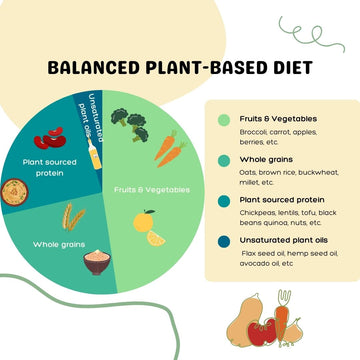Numerous clinical research results, case studies, and personal experiences support the absolute positive effects of a plant-based diet on our health. In addition, the ethical and environmental aspects of the vegan lifestyle are also unquestionable.
The question arises: how much of what should we consume to have a balanced diet if we lead a vegan lifestyle?
There are no strict rules of thumb, but the following recommendations are worth considering.
If you decide to switch to a completely plant-based diet, you need to pay close attention to the proper ratio and amount of nutrients that we can get from vegetables, fruits, seeds, plant proteins, whole grains, or vegetable oils.
First and foremost, we should eat plenty of fruits and vegetables every day (organic if possible), as they provide the majority of our vital dietary fiber and vitamins.
It is also important to consume a high proportion of whole grains on a daily basis (if possible, also organic and gluten-free), which contain useful carbohydrates, minerals, and trace elements.
Furthermore, our body needs a higher proportion of (plant-based) protein, which can be provided primarily by legumes, lentils, tofu or grains.
For example, if you live a "carnivore", "omnivorous" or flexitarian lifestyle, it is advisable to keep the amount/ratio of animal-based foods to a minimum and consume minimal amounts of them.
Overall, variety and balance are important, which applies to all diets.






